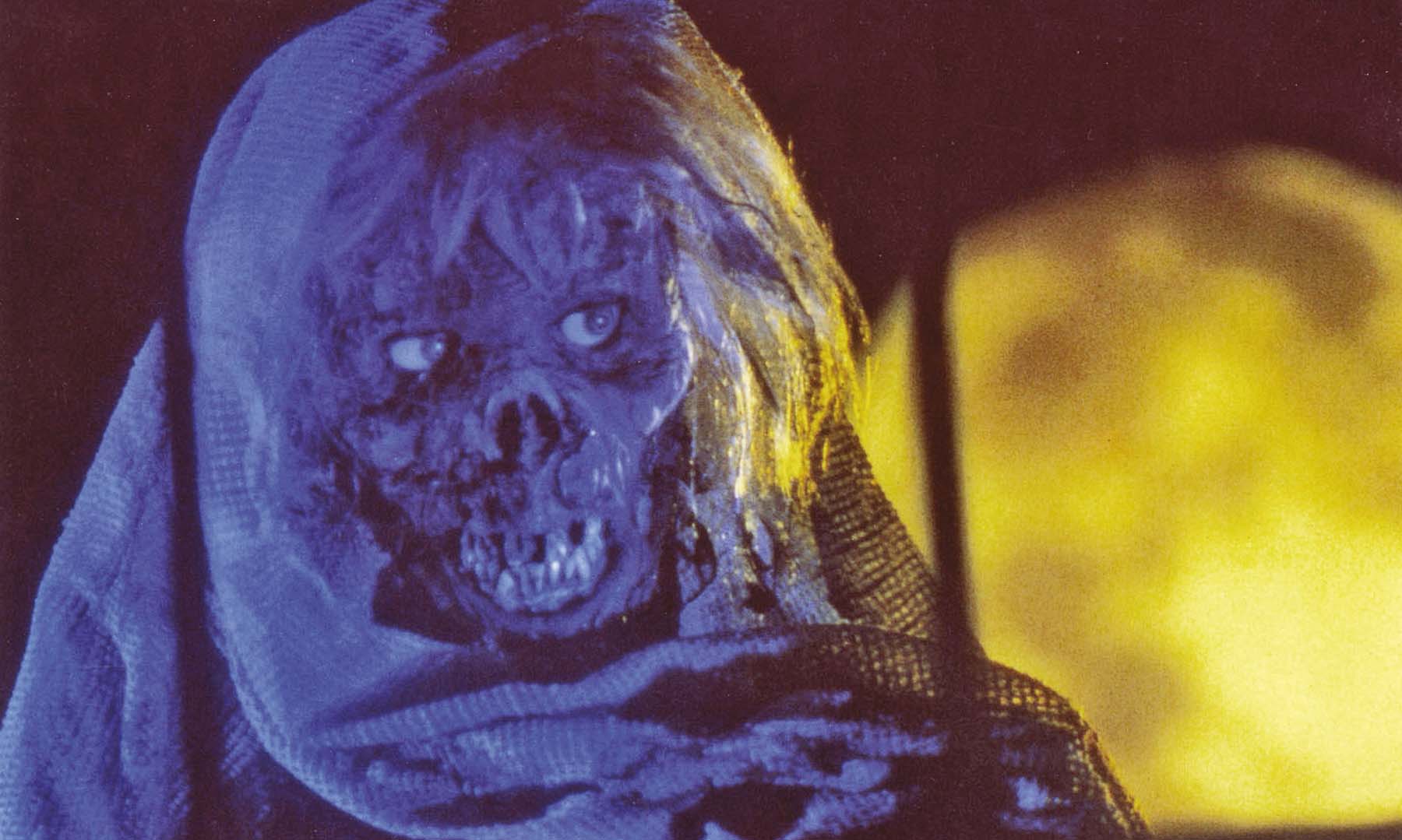DO YOU REALLY KNOW HOW TO SURVIVE A HORROR MOVIE?
“What’s your favorite scary movie?” the unidentified caller asks. Casey Becker (Drew Barrymore) is a high school student who at first enjoys the flirty, anonymous attention. But then the caller becomes menacing and says that her boyfriend is a hostage and will be killed unless she can correctly answer certain questions about horror movies. She tries as best as she can but gives a wrong answer, after which her boyfriend is disemboweled. The questions keep coming, and when she refuses to answer, she is murdered by a killer in a ghostly mask and found by her parents swinging from a tree, gutted like her boyfriend, entrails hanging.
It was the opening scene of Wes Craven’s Scream that let 1996 audiences know the film wasn’t going to be another formula slice-and-dice. There was nothing routine about killing off a star like Drew Barrymore just a few minutes into a movie. Even in Psycho, Hitchcock let Janet Leigh survive half the film before sending her off to the shower, and that was still a pretty unsettling good-bye.
Originally titled Scary Movie—a title saved by screenwriter Kevin Williamson for yet another, lighter-hearted franchise—Scream earned $173 million worldwide and effectively reinvigorated the horror genre, which in the 1990s was swamped by tired sequels to films that were already sequels or worn-out remakes. The freshest thing about Scream was that it expected its audiences, as well as its characters, to be fully aware of modern horror movie conventions, and to use the knowledge strategically to anticipate the next scare. It’s not so much a slasher movie as a movie about the whole idea of slasher movies. The characters drop actors’ names and even wonder who will play one another on-screen if the melodrama unfolding around them ever gets made into a horror film. The irony is, we’re already watching that film.
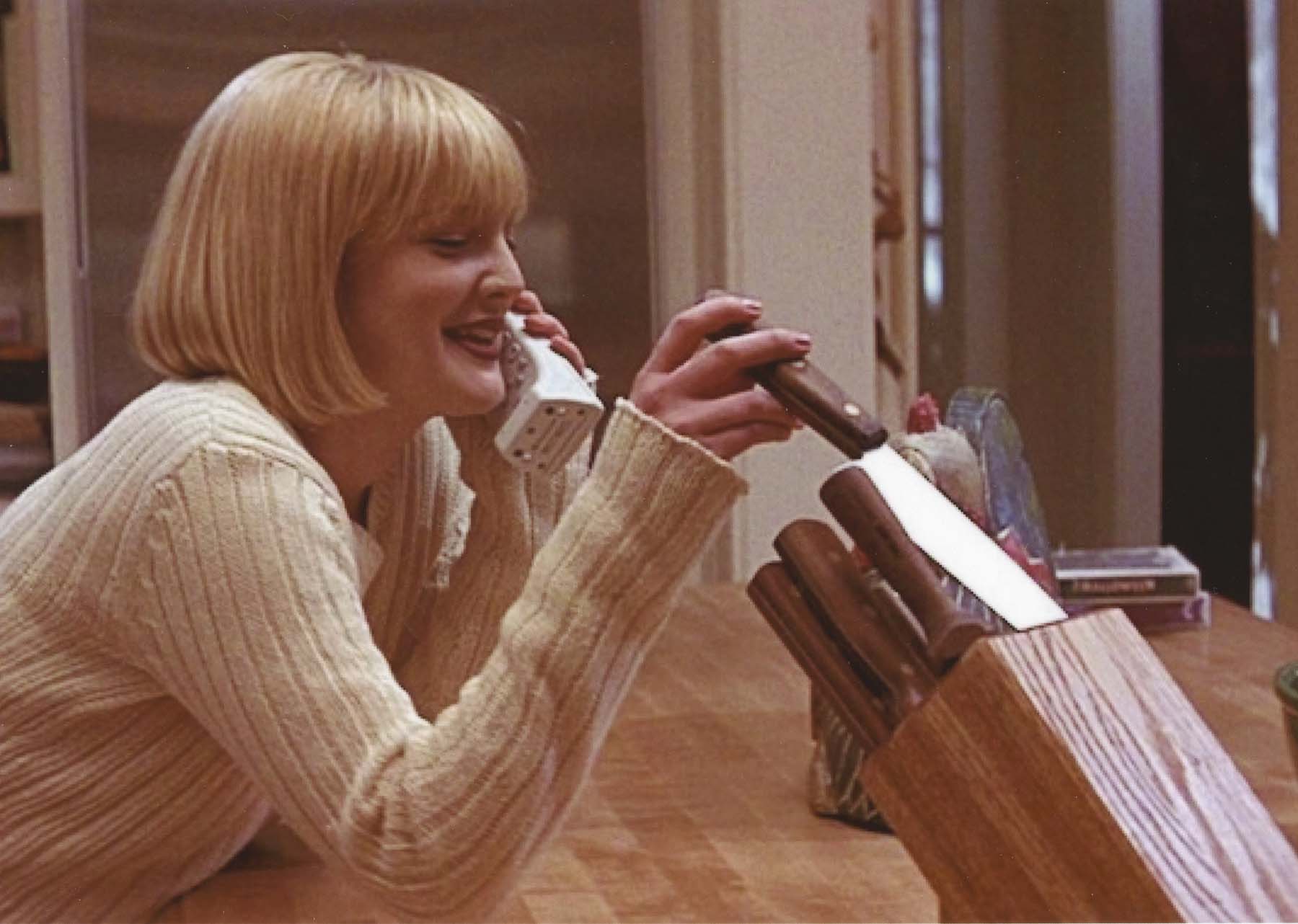
Casey Becker (Drew Barrymore) plays a teasing phone game of horror movie trivia.
The film’s video-store maven, Randy (Jamie Kennedy), spells out the basics to a group of teens at a slasher festival: “To successfully survive a horror movie, you have to abide by the rules.” First, “You can never have sex: the minute you do, you’re as good as gone. Sex equals death.” Second, “Never drink or do drugs: it’s an extension of the first.” And third, “Never, ever say, ‘I’ll be right back.…’” Because you won’t.
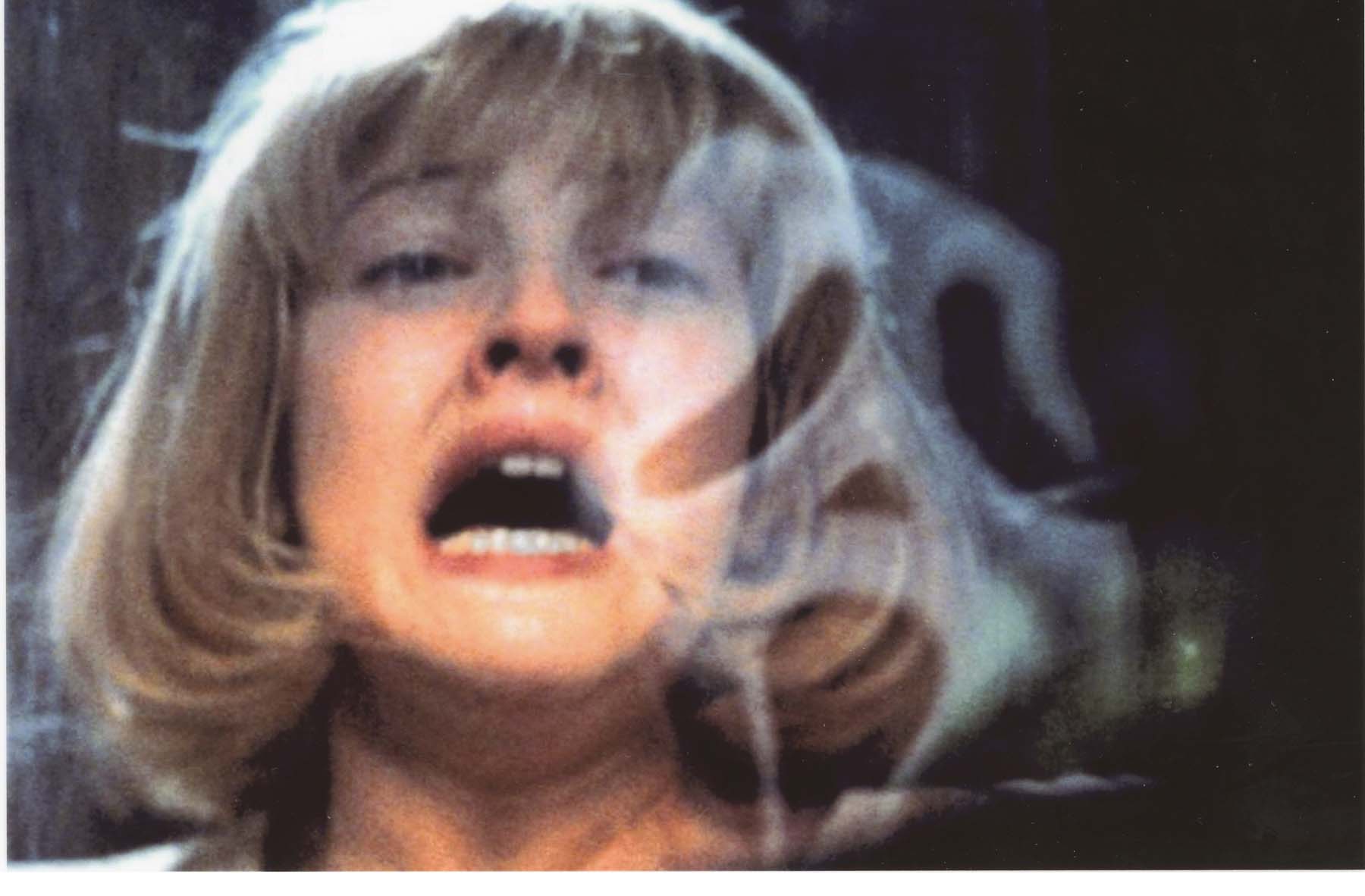
If you play with Ghostface, it’s a game of life and death.
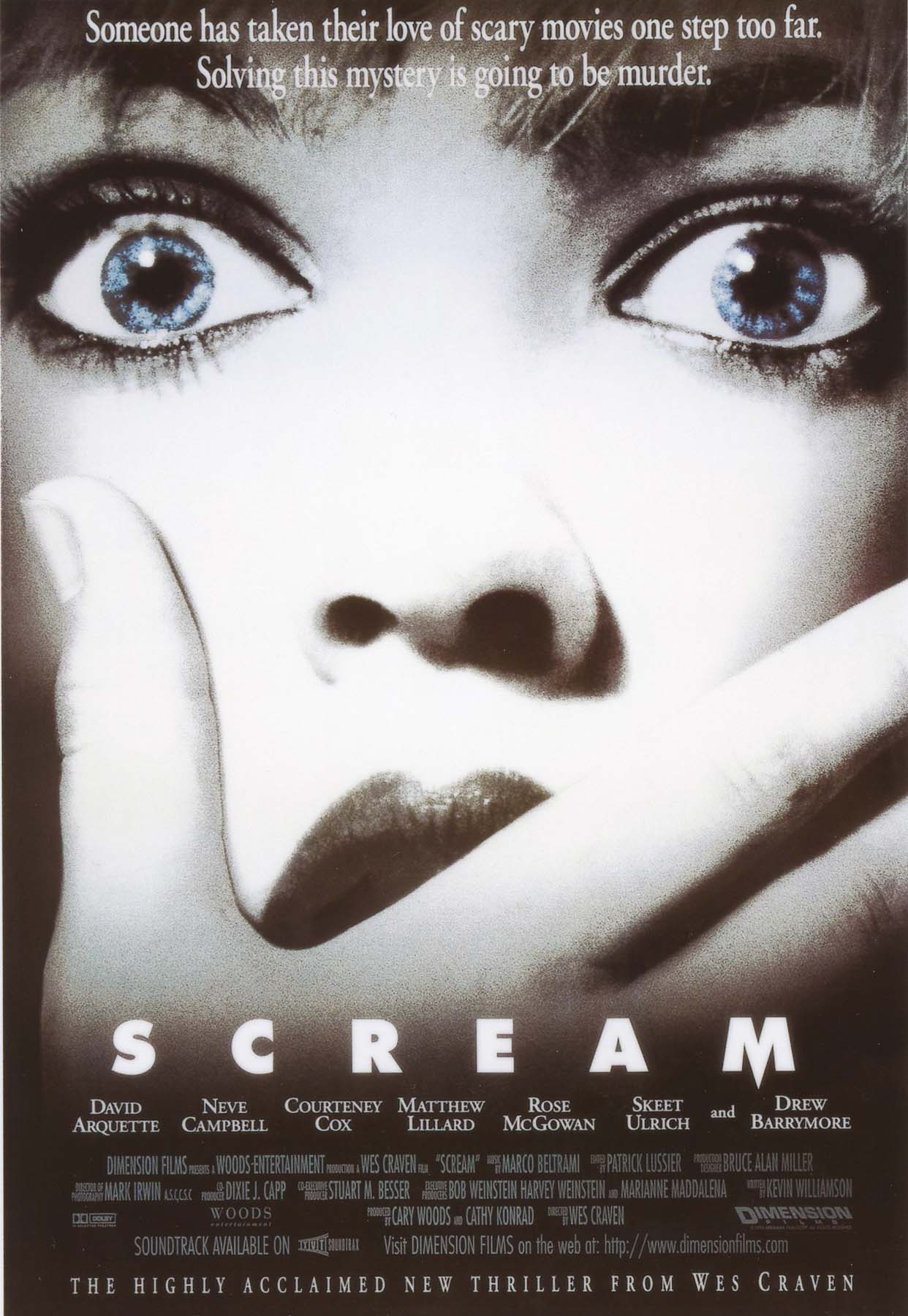
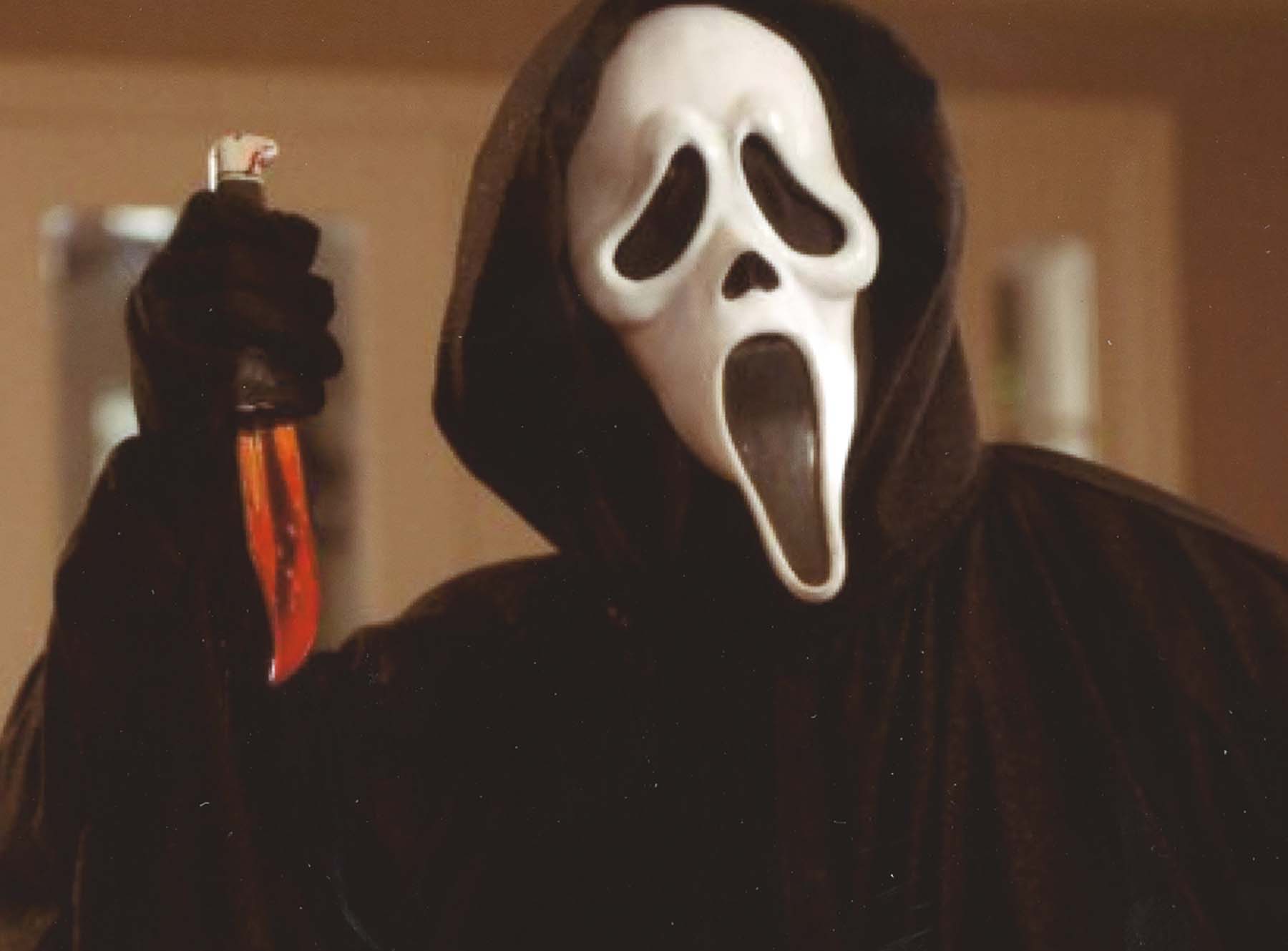
Every movie slasher needs an iconic mask. It’s a rule.
Following the bloodbath prologue, Scream settles down into its story proper, the ordeal of a small town traumatized by the killings and worried that there will be more. The town is right to fret. High school student Sidney Prescott (Neve Campbell) is still dealing with the death of her mother, killed by a never-apprehended slasher one year ago. Is it possible the killer has returned? Sidney begins receiving threatening calls and suspects her boyfriend, Billy (Skeet Ulrich). Gale Weathers (Courteney Cox), a tabloid television reporter, is eager to dig up dirt and cast suspicion anywhere if it makes a good story. Deputy Sheriff Dewey Riley (David Arquette) is earnest but goofy, in his own mind always about to crack the case. Suspicion flies in every direction, and at one point or another everyone seems like a plausible killer. And the characters in Scream who think they know everything about horror dynamics are often the most at risk because of their overbearing confidence.
The extra-gruesome effects were created by the KNB EFX Group, comprising Robert Kurtzman, Greg Nicotero (later a major force behind The Walking Dead), and Howard Berger, all experts in the horror genre. They manufactured over fifty gallons of artificial blood for the production, as well as realistic throat cuttings, guttings, and dripping blood. A good deal of their work went unseen as director Craven tussled with the MPAA rating board, submitting eight separate cuts of the film to address their objections, trimming and shortening the most elaborate and accomplished gore effects to avoid a revenue-killing NC-17 rating. In order to retain the shock value of Drew Barrymore’s murder scene, he falsely claimed that the actress was simply unavailable for reshoots. And the film finally got its R rating.
The Scream franchise expanded to four films over fifteen years, all directed by Craven: Scream 2 appeared in 1997, Scream 3 in 2000, and Scream 4 in 2011. Scream: The TV Series had a three-season run from 2015 to 2019, employing a completely new set of characters.
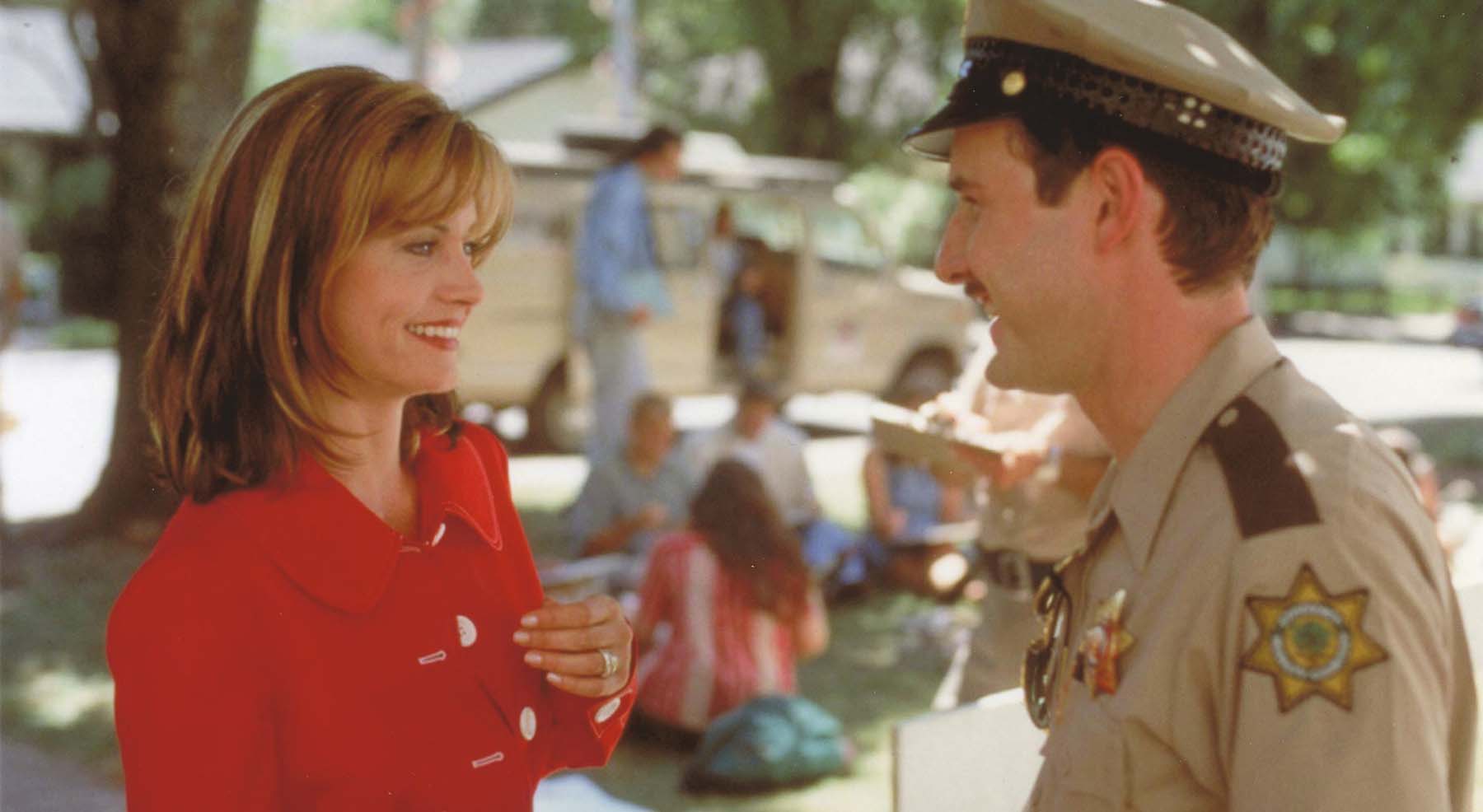
Reporter Gale Weathers (Courteney Cox) confers with Deputy Sheriff Dewey (David Arquette).
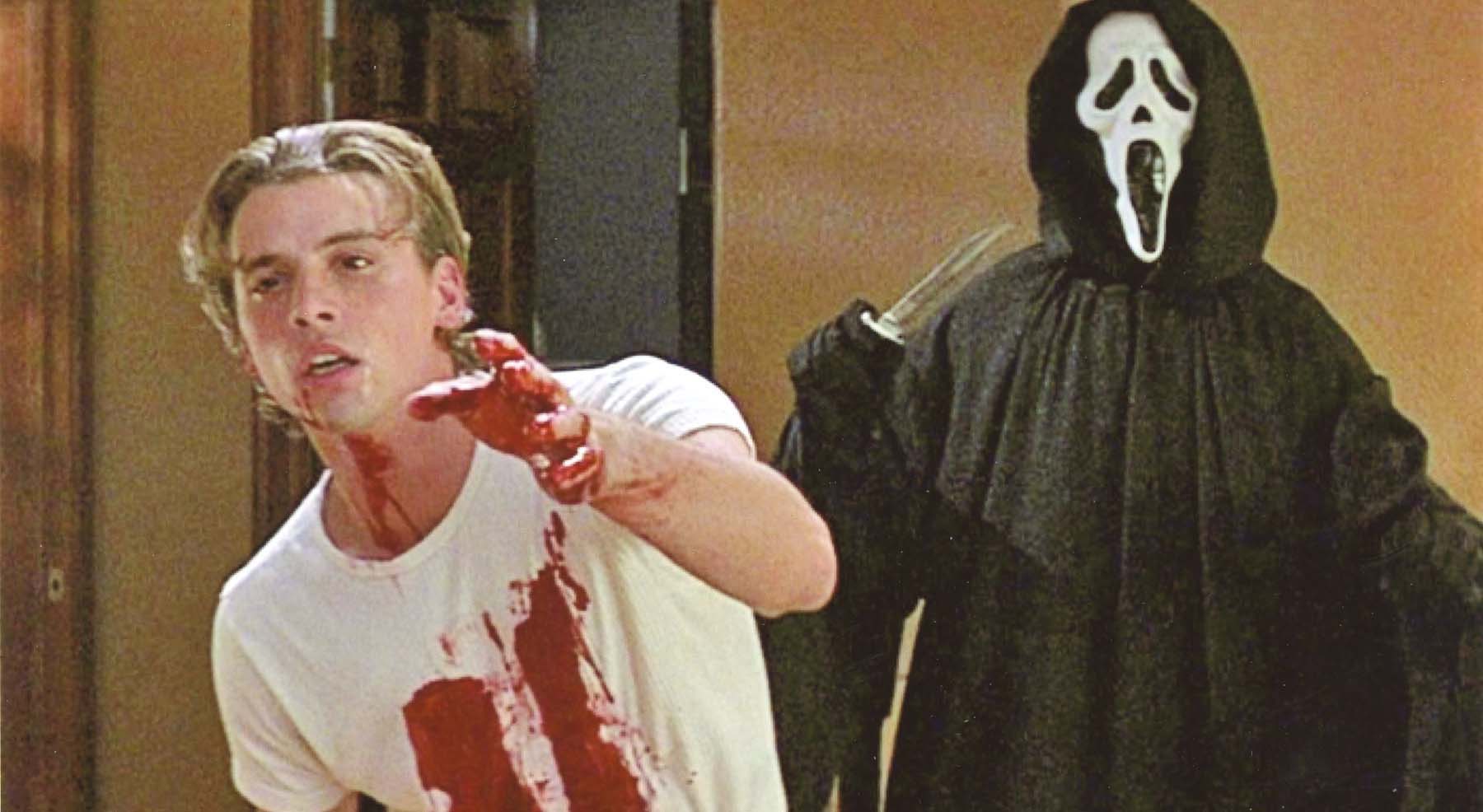
Ghostface catches up with Billy Loomis (Skeet Ulrich).
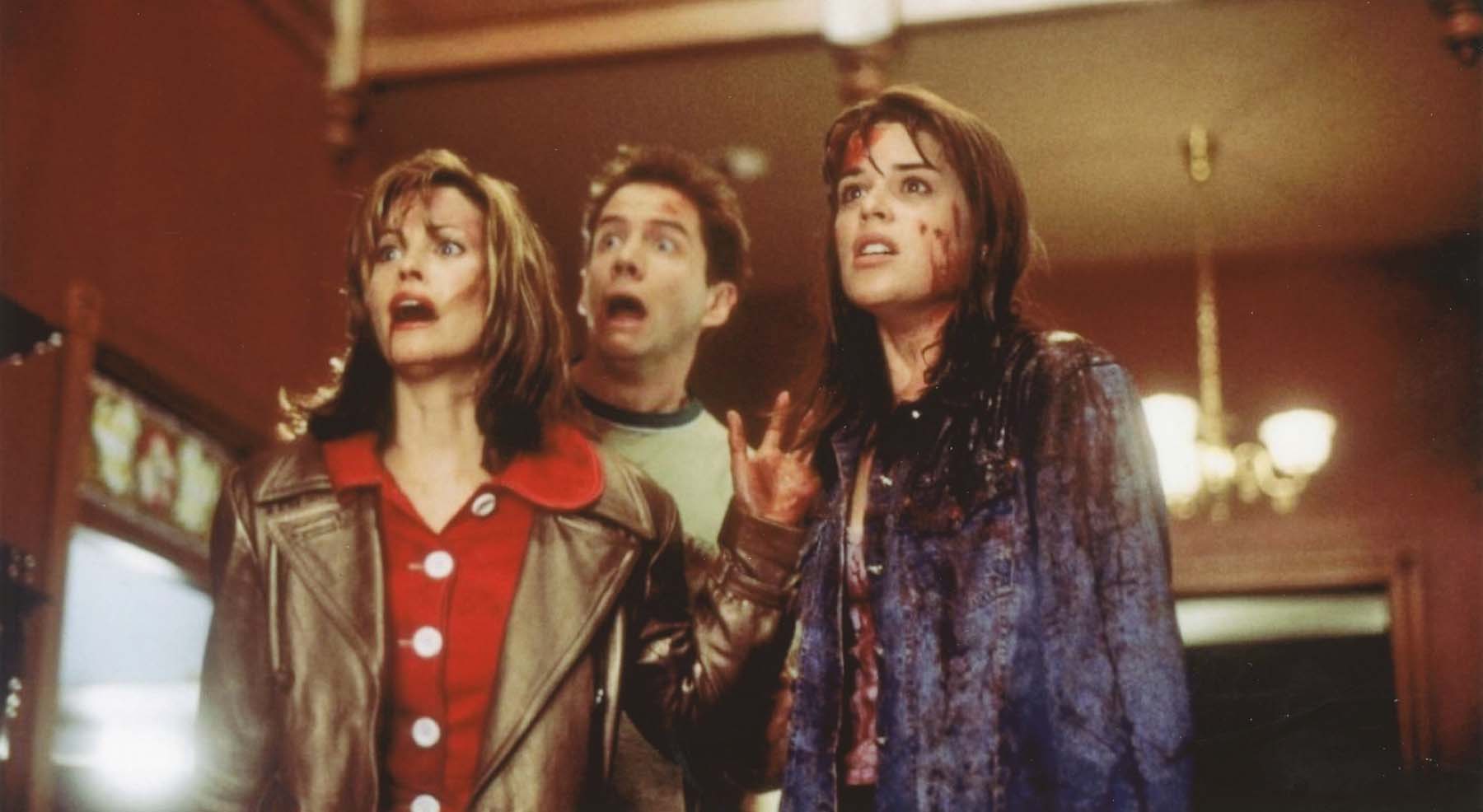
Gale Weathers, Randy Meeks (Jamie Kennedy), and Sidney Prescott (Neve Campbell) all register completely appropriate reactions to a slasher epidemic.
If you enjoyed Scream (1996), you might also like:
CREEPSHOW
LAUREL PRODUCTIONS, 1982
